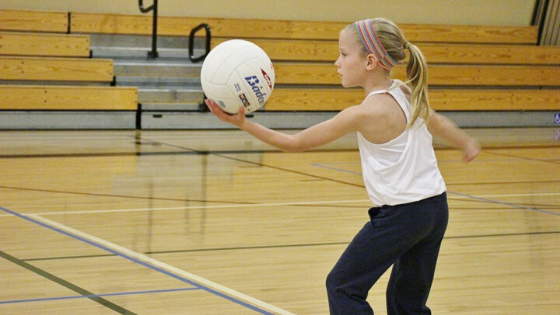It’s a well-known fact that regular exercise helps us to stay fit and healthy. Maintaining a balanced weight, and getting your heart rate up a few times a week, helps to prevent lifestyle-related diseases like type II diabetes, heart disease, stroke and obesity. Cardiovascular exercise also boosts the endorphins in our brains, something that can ease the symptoms of depression and help with mental health issues.
However, even though most of us are aware of the many health benefits of regular exercise, a lot of adults in the UK are still reluctant to get out and get active. According to figures published by The Independent, one in three Brits doesn’t get enough exercise. While in some cases, this could be down to a lack of time, a lack of energy or illness, a lot of these people might be avoiding exercise because of bad childhood memories. Keep reading to find out more.
The impact of PE lessons
All childhood experiences have an impact on the people we become as adults, and PE lessons are no different. According to recent research, a negative experience in school PE lessons can have a lifelong impact, with those who struggled with games at school a lot less likely to be active as adults.
The research showed that people who were regularly picked last in PE are more likely to live sedentary lives when they get older. Those who struggled in team sports and found physical challenges difficult were also a lot less likely to be fit and active as adults.
Many of those who took part in the research reported finding these early experiences of exercise humiliating and difficult. As a result, they began to associate physical activities with negative emotions, something that has prevented or discouraged many from getting involved in sport and activity as adults.
On the other hand, people who responded to the survey saying they had positive experiences of PE at school are a lot more likely to be fit and healthy later in life. People who didn’t feel singled out and who got positive recognition from their teachers associated exercise with fun and enjoyment, something that ensured they were more likely to continue playing sports and visiting the gym as they got older.
In essence, the research showed that if adults associate exercise with negative memories, they won’t expect it to be enjoyable, and so will be less likely to exercise. While adults who believe physical activity is fun will be a lot more inclined to get active.
How to improve PE lessons for today’s children
In order to ensure that the adults of tomorrow aren’t put off exercise by negative experiences in childhood, schools need to improve PE lessons for all participants. For some schools, this may involve a radical rethink of their lesson plans, while all schools should assess the sports they offer to ensure they’re as inclusive, and as fun, as possible.
As one of the main negative memories adults reported was being picked last for team sports, PE teachers should look for alternative ways to make their teams. Giving kids random numbers, or dividing them using other, non-discriminatory means, should help to prevent less able children from feeling left out.
The research showed that positive recognition from a PE teacher went a long way to helping children create a good association with exercise. PE teachers should try to ensure they make positive remarks to all pupils regardless of ability.
Schools, and teachers, also need to work on making their PE lessons as fun as possible. While lessons need to be informative and challenging as well as enjoyable, the research shows that having fun during PE lessons as a child can really help to encourage people to stay fit as they age. This makes the fun factor one of the most important considerations for today’s PE teachers.
Introducing a bit of variety into PE lessons is another good way to get kids excited about exercise. Some children might excel at ball sports while others are better at tactics, speed or stamina. Playing a variety of games will help to ensure children learn a range of skills, and different kids can shine in different areas.
How clubs make sports more enjoyable
Positive experiences of exercise don’t just have to happen in PE lessons. In fact, taking part regularly in any sport, game or physical activity can help to boost kids’ confidence and set them up for a healthy life.
Adding a variety of active clubs to the after-school timetable can be a great way to boost the number of pupils getting regular exercise. Clubs also allow schools to increase the range of activities they offer, something that may well be crucial to boosting enjoyment and pupil participation.
Schools could consider offering activities like martial arts, netball, rugby and even cheerleading. Ensuring there’s an activity to suit everyone will help to get as many kids as possible taking part and having fun.
Offering a range of after-school activities helps to get kids excited about sport and shows them exercise can be enjoyable. This early positive experience of sport is a great way to set kids up for a healthy life and ensure they stay active and fit as adults.
How to run more school clubs
If you think your school could benefit from boosting the number of clubs it offers, we can help. Our online platform makes club admin quick and easy, and helps to connect schools with experienced, qualified club leaders.
By streamlining the process, Clubbly allows schools to dramatically increase the range of clubs they offer without increasing the workload of teachers and club leaders. This can allow schools to offer their pupils a great range of clubs and ensure that all children are getting out and getting active.
Get in touch with a member of our team, or take a look around our site to find out more.

